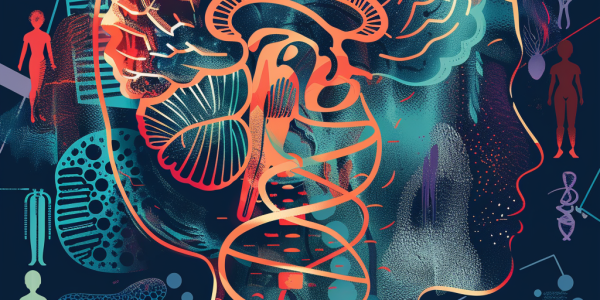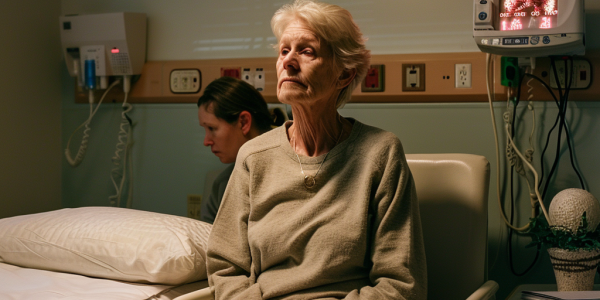Managing Holiday Stress: Effective Breathing Techniques for Calm
The holiday season can heighten stress and anxiety, but effective management techniques, such as breathwork, can help restore calm. Discover insights from wellness expert Jenna Zaffino on understanding stress and utilizing breathing exercises like diaphragmatic breathing and the physiological sigh to combat overwhelm. Learn how to create a stress-relief routine and recognize when to seek professional help for better mental health.
Breakthrough Discovery Reveals Brain Circuit Controlling Voluntary Breathing
Scientists at the Salk Institute have uncovered a specific brain circuit that controls voluntary breathing, providing insights into the link between breathing patterns and emotional regulation. This groundbreaking research, published in Nature Neuroscience, reveals how the frontal cortex influences automatic breathing functions, paving the way for new therapeutic interventions for anxiety and stress management. Understanding these mechanisms enhances our knowledge of practices like yoga and mindfulness that promote emotional well-being.
Study Reveals Nature’s Positive Impact on Children’s Mental Health
A groundbreaking study from the University of Montréal reveals that outdoor education significantly benefits the mental health of school-aged children. By integrating nature into learning, students experienced reduced anxiety and improved focus, highlighting the importance of outdoor programs in schools for enhancing emotional well-being.
New Research Identifies Key Cell Types in Amygdala Linked to Anxiety Disorders
Recent research from UC Davis reveals new insights into the amygdala’s role in anxiety and fear processing. Identifying specific ‘gatekeeper’ cell types within the amygdala, this study highlights potential targets for innovative treatments of anxiety disorders. Published in the American Journal of Psychiatry, the findings emphasize the need for a deeper understanding of cellular functions in emotional regulation, paving the way for more effective therapies tailored to the biological mechanisms of anxiety.
Study Reveals Nutrition and Exercise Key to Reducing Anxiety in College Students
A recent study from Silpakorn University reveals that nutrition and physical activity significantly reduce anxiety levels in college students. With physical activity contributing to a 36.93% decrease and healthy eating habits leading to a 24.9% reduction in anxiety symptoms, the research highlights the importance of a holistic approach to mental health. Students are encouraged to engage in regular exercise, adopt a nutrient-rich diet, prioritize sleep, and practice mindfulness to enhance their well-being and academic performance.
Nutritional Psychiatry: How Diet Impacts Mental Health
Discover how your diet impacts mental health through nutritional psychiatry. Experts like Dr. Uma Naidoo emphasize the connection between food and mood, highlighting that simple dietary changes can enhance well-being. Learn about five superfoods—leafy greens, fatty fish, fermented foods, nuts, and berries—that can boost your mental health and reduce anxiety. Prioritize whole foods for a healthier mind and explore the gut-brain connection to improve your emotional well-being.
Groundbreaking Study Identifies 115 Genes Linked to Anxiety Disorders
Groundbreaking research from Yale University reveals 115 genes linked to anxiety disorders, affecting 301 million globally. This study enhances our understanding of genetic factors, brain regions involved, and potential for targeted therapies, paving the way for personalized medicine in mental health treatment.
Transforming Nighttime Anxiety into Restful Sleep
Struggling with sleeplessness due to racing thoughts? Discover expert insights from Dr. Mark Rosenblum on how anxiety disrupts sleep and effective strategies like mindfulness meditation, exercise, and establishing a bedtime routine to promote restful nights. Transform your bedroom into a sanctuary for relaxation and rejuvenation.
Mental Health Risks Surge After Heart Disease Hospitalization
Recent research reveals that individuals hospitalized for cardiovascular disease face an 83% increased risk of developing psychiatric disorders and suicide attempts within a year. This study emphasizes the importance of addressing mental health alongside physical recovery post-heart disease hospitalization, urging healthcare providers to monitor for anxiety, depression, and other mental health challenges. By prioritizing mental health care, we can improve recovery outcomes for patients.
Study Explores Modification of Psychedelic Drug to Retain Therapeutic Benefits
A recent study explores the potential modification of a psychedelic drug to retain therapeutic benefits while eliminating psychedelic effects. By targeting the serotonin 1A receptor, researchers aim to develop modified drugs for treating psychiatric illnesses like depression and PTSD.










